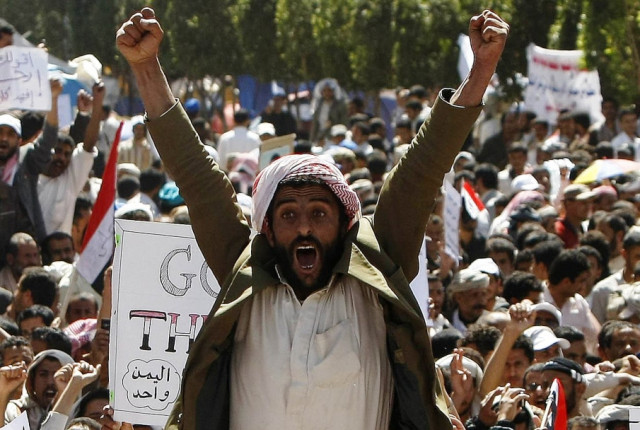Arab Spring must not become Arab Winter
Delaying elections in the affected states is complicating the map of the ‘revolution’ in favour of dictatorships.

The Arab League has 22 members and they are all willing to let the UN handle the situation. So we have a situation where the big veto-bearing powers will have to agree on when to pull the Bashar regime down. What happened in Libya has not happened in the case of Syria because of Russia and China. And the Americans no longer have the stomach to send a regime-changing army into the Middle East. And the Syrian Army is loyal to President alAssad, which means that the crisis will be prolonged and the Syrian people’s aspirations for democracy will not be fulfilled for some days to come.
Nine months ago, Present Hosni Mubarak was made to step down and face trial but the Egyptian military high command had promised a general election in November-December, however, instead of holding firm to the deadline of November 28, the Egyptian police has been killing protesters. Around 33 to 46 protestors have been killed in the last 10 days and nearly 1,300 wounded. Tahrir Square in Cairo is once again the rallying ground for Islamists and secular young people. Unlike Tunisia, the armies of Egypt and Syria have stood by the status quo and will not allow the change people want. In Libya, the army fought the people till it was defeated — with not a little help from Nato — and an appropriate post-Qaddafi government could take over.
In practically all Muslim states, the national army is dominant either upfront or behind the scenes. The armies represent the status quo and hold back the survival instinct of the people who want change. Even in countries like Pakistan and Bangladesh, the armies are dominant behind the scenes and will not allow elected representatives to change policies that no longer work. Only in Turkey, the long military-dominated governance is seen to be coming to an end. Delaying elections in the affected states in the Middle East is complicating the map of the ‘revolution’ in favour of dictatorships.
For once the world — counting both the East and the West — is agreed that the states suffering long bouts of dictatorships must turn to democratic governance. A delay in holding elections in Egypt is making it possible for the various fringe groups not in favour of democracy to indulge in violence to move their agendas ahead and usurp the space they don’t deserve to have under democracy. The Coptic Christian minority is being attacked. The American University campus and other buildings in Cairo have been targeted. Is this counter-revolution already? The entire civilian cabinet in Cairo has resigned and its resignation has been accepted by the ‘ruling military council’.
It is a battle between the remnants — the biggest one being the army — of the old order that had no public consent behind it and the millions occupying the streets who are to give legitimacy to any government with their vote. In Yemen, where the ruler has finally made his final bow, the final deal will be struck with the army and elections must be held to reinstate the consent of the people behind whoever rules them.
The Muslim world must not go back to the old, at best, erratic governance which has failed to deliver what it promised: prosperity at the price of democracy. Prosperity has not occurred and the people have lost out on such essentials as education — the Islamic world lags behind the world in useful literacy. The Arab Spring must not revert to the barren Arab Winter of Mubarak, Qaddafi and alAssad. In the broader Muslim world, the armies of Bangladesh and Pakistan, too, must end their behind-the-scenes direction of policies if democracy is not to lose its appeal among the masses.
Published in The Express Tribune, November 27th, 2011.














COMMENTS
Comments are moderated and generally will be posted if they are on-topic and not abusive.
For more information, please see our Comments FAQ